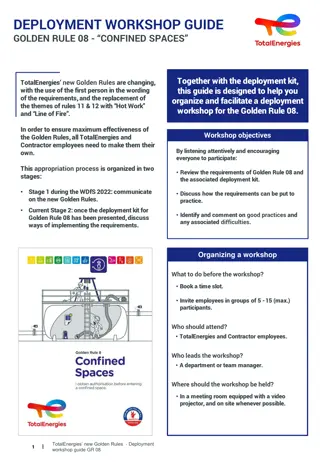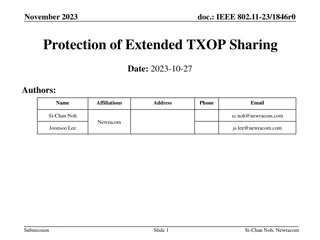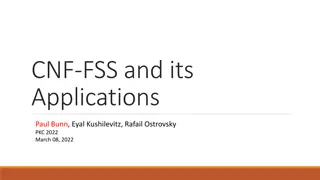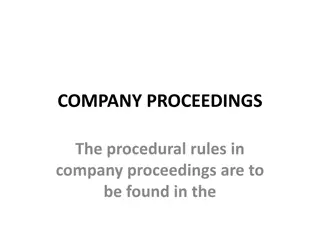The Seven Golden Rules of Information Sharing
In this guideline, you will learn about the seven golden rules of information sharing, including aspects like respecting consent, being open and honest, seeking advice when in doubt, prioritizing safety and well-being, ensuring accuracy of shared information, and the importance of recording reasons for decisions. These rules emphasize the thoughtful and responsible sharing of information in compliance with Data Protection regulations.
Download Presentation

Please find below an Image/Link to download the presentation.
The content on the website is provided AS IS for your information and personal use only. It may not be sold, licensed, or shared on other websites without obtaining consent from the author.If you encounter any issues during the download, it is possible that the publisher has removed the file from their server.
You are allowed to download the files provided on this website for personal or commercial use, subject to the condition that they are used lawfully. All files are the property of their respective owners.
The content on the website is provided AS IS for your information and personal use only. It may not be sold, licensed, or shared on other websites without obtaining consent from the author.
E N D
Presentation Transcript
The Seven Golden Rules of Information Sharing
Not a barrier Recognise that the Data Protection Act is not a barrier to sharing information; it provides a framework to make sure that personal information about families is shared appropriately
Share with consent Share with consent where appropriate and, where possible, respect the wishes of those who do not consent to share confidential information. You may still share information without consent if, in your judgement, that lack of consent can be overridden in the public interest. You will need to base your judgement on the facts about the case. Seek advice from your line manager if you are not sure
Be open and honest Explain openly and honestly to the person at the outset what information will or should be shared, why, how and with whom, and seek agreement except where doing so outs the child or others at risk of significant harm
Seek advice Seek advice if you are in any doubt, without disclosing the identity of the person where possible
Consider safety and wellbeing Consider safety and wellbeing; base your information sharing decisions on consideration of the safety and wellbeing of the person and others who may be affected. The child s safety and welfare must be the overriding consideration when making decisions to share information about them.
Accurate and up to date Ensure information shared is accurate, up-to-date, proportionate and necessary for the purpose for which you are sharing it. Share it only with those who need to know, and share it accurately and securely
Record the reason Always record the reason for your decision (using your agency s recognised recording system) whether it is to share or not, the information shared, for what purpose, with whom, and how it was shared.


![❤[READ]❤ Robotic Exploration of the Solar System: Part I: The Golden Age 1957-19](/thumb/21623/read-robotic-exploration-of-the-solar-system-part-i-the-golden-age-1957-19.jpg)




















